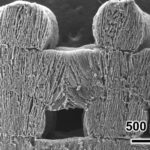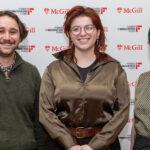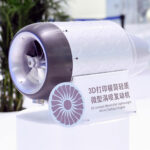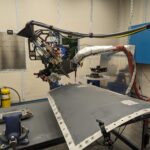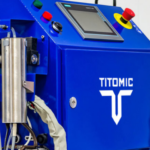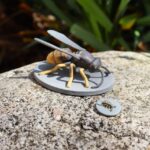While we often discuss the impact of pollution on the environment and in general, there are certain groups that face worse challenges from it. Unclean air pollution causes roughly 7 million deaths per year and some people suffer far greater risks from it. The lack of clean air can be particularly hazardous to those that have asthma and other respiratory problems. This is why a group of college students invented ‘CAELI’, a smart automated anti-pollution mask for patients with respiratory challenges.
The mask was the brainchild of 3 computer science students from Manav Rachna International Institute of Research and Studies. Named after the latin word for air, the mask comes with 3 filters that automatically cut out PM 2.5 particulate matters and it even administers medicine. It could bring relief to those with not just asthma but also bronchitis and COPD, among other diseases.
“Caeli has features to improve the quality of life for respiratory living in polluted areas. It has been developed at the 24X7 Innovation and Incubation Centre of Manav Rachna (MRIIC),” said Umesh Dutta, while talking to Education Times. Dutta serves as the deputy director at the Manav Rachna Innovation and Incubation Centre.
The Automated Anti-pollution Mask
https://youtu.be/RD_QsQBS9AI
As an automated anti-pollution mask, Caeli is very intuitive. It detects changes in air quality and activates a centrefuge if conditions are met. Thus, it can regulate breathing and air flow, even providing the ability to pair with one’s cellphone. It even saves usage data and uploads it to the cloud, which could be useful for medical professionals or environmental statisticians. The 3 filters are replaceable, providing optimal air cleansing and it also houses 2 chambers for storing medicine.
Vasu Kaushik Aakash Bhadana and Bharat Sundal are currently attending the sixth semester of their studies. Yet, their group has obtained Rs50000 from the institute for their project and also garnered wide acclaim elsewhere. They won the 2019 Microsoft Imagine Cup Asia regional finals held in Sydney this month. Caeli was even compelling enough to gain support from from Stratasys, who guided the project with design improvements.
While Caeli is an important device, it is still not in the commercial stage yet. “In the wake of air pollution in Delhi-NCR, the idea of Caeli came to life in 2016 and we have been consistently working on it since then. Now we are working on a viable business model to bring our product in the market,” Dutta added.
Featured image courtesy of the Times of India and video courtesy of Tech ARP.



